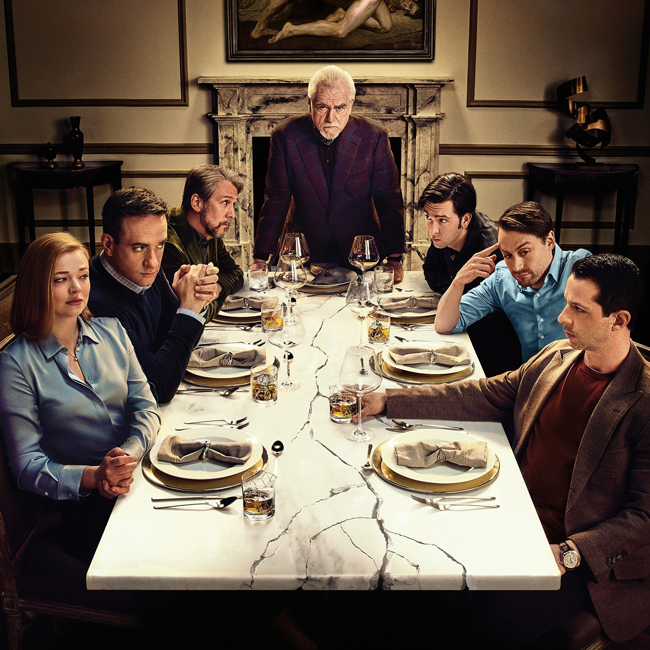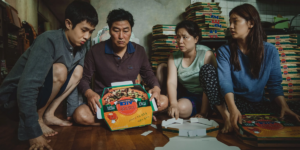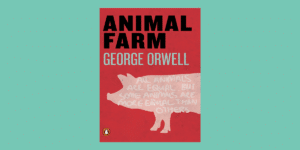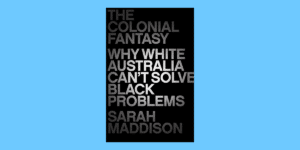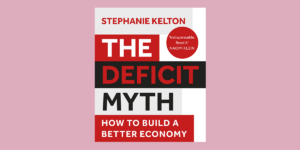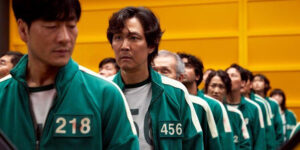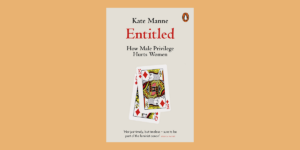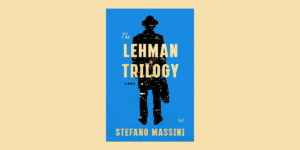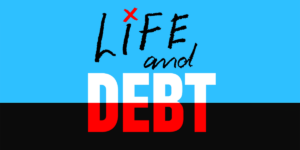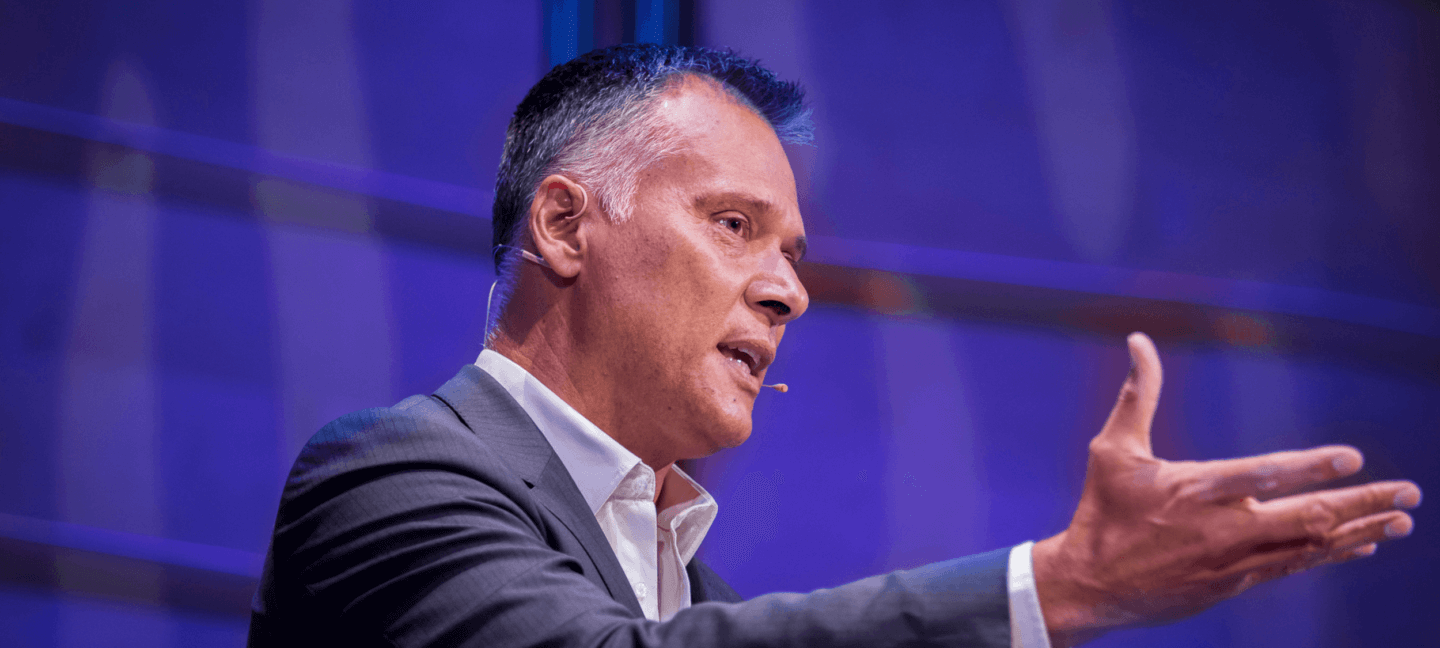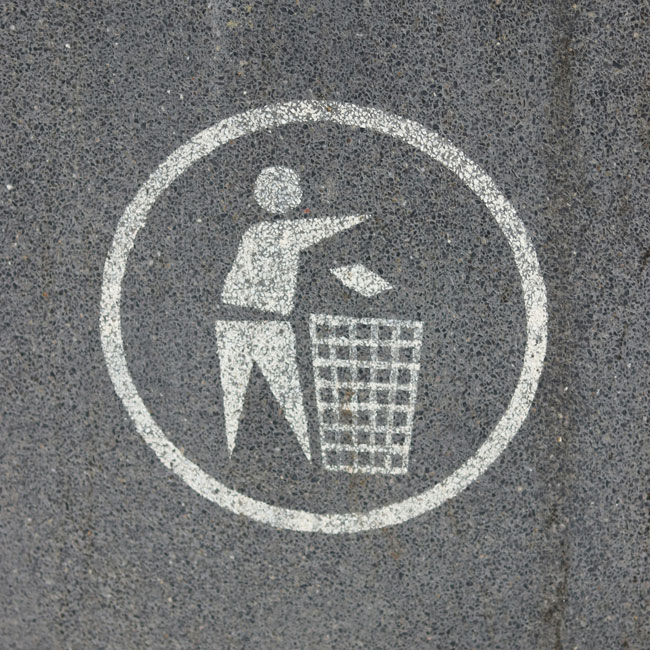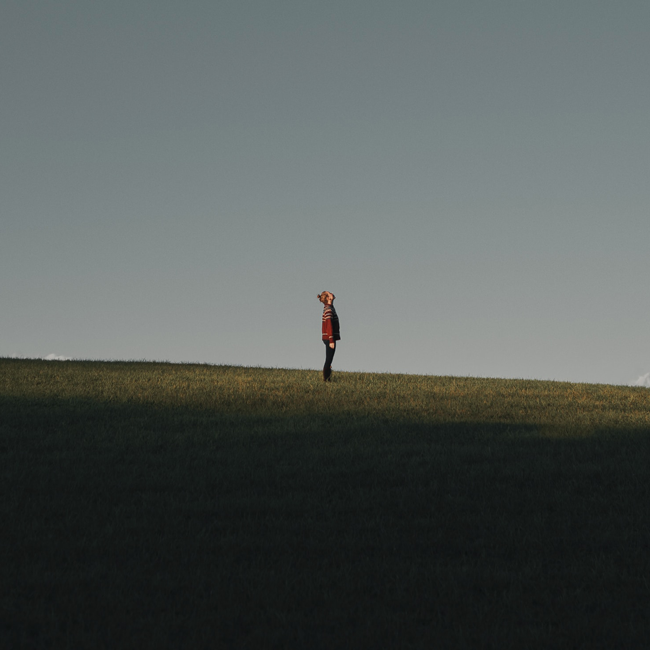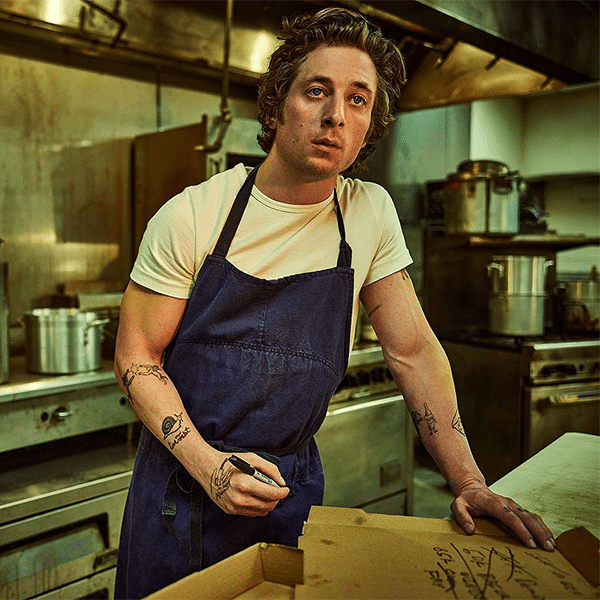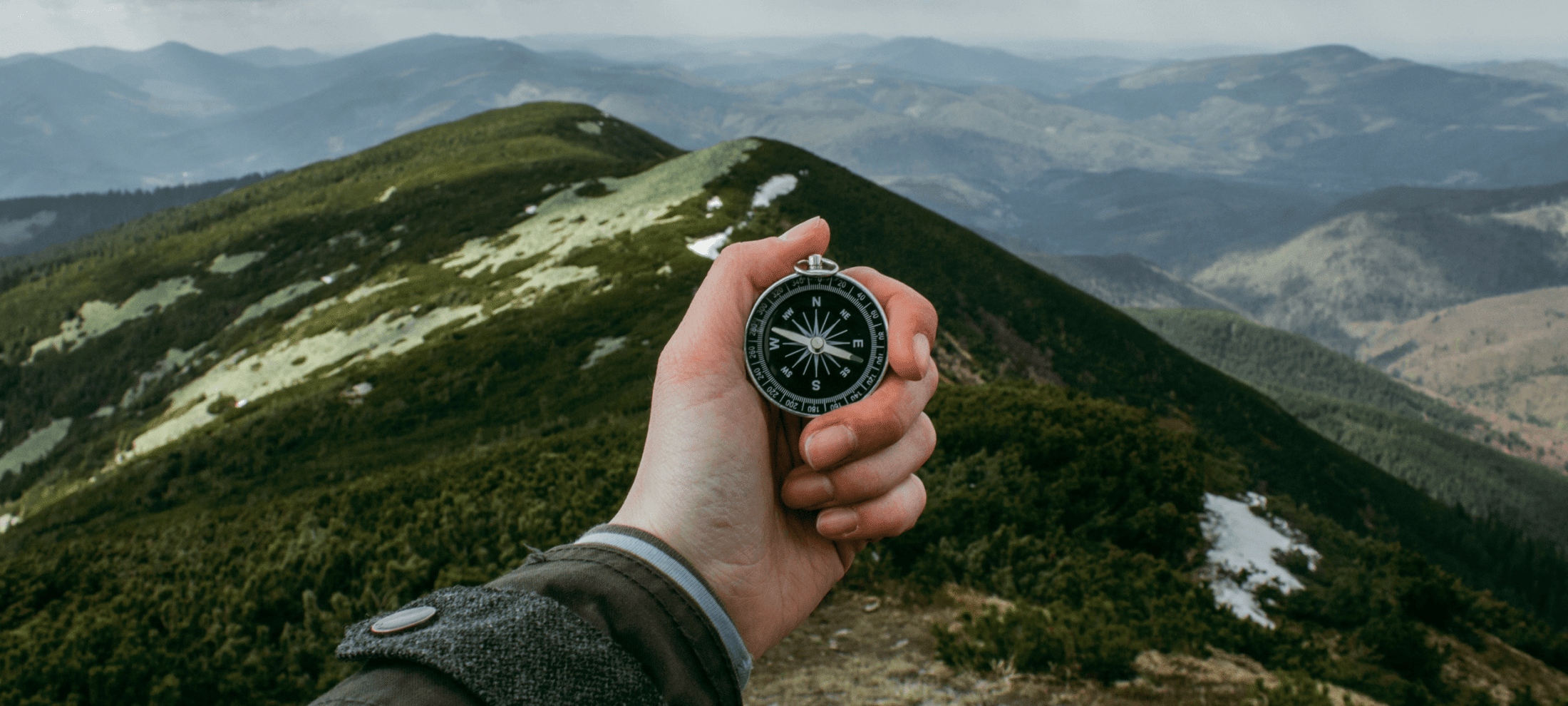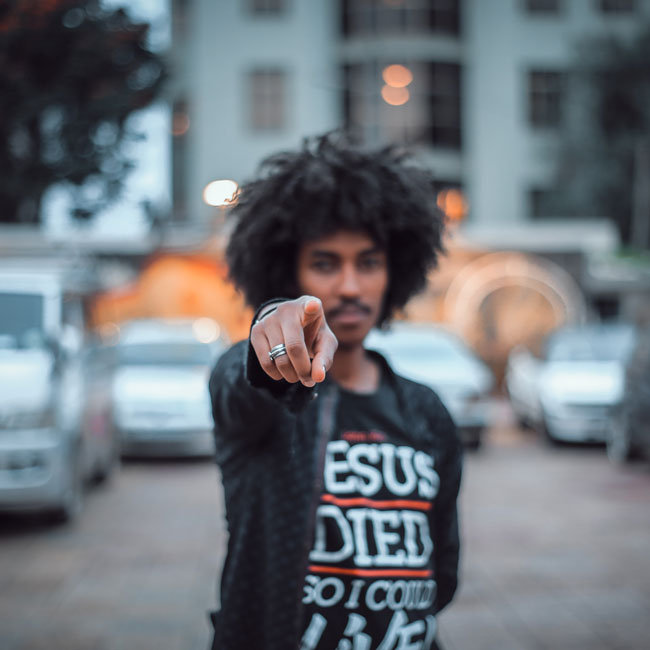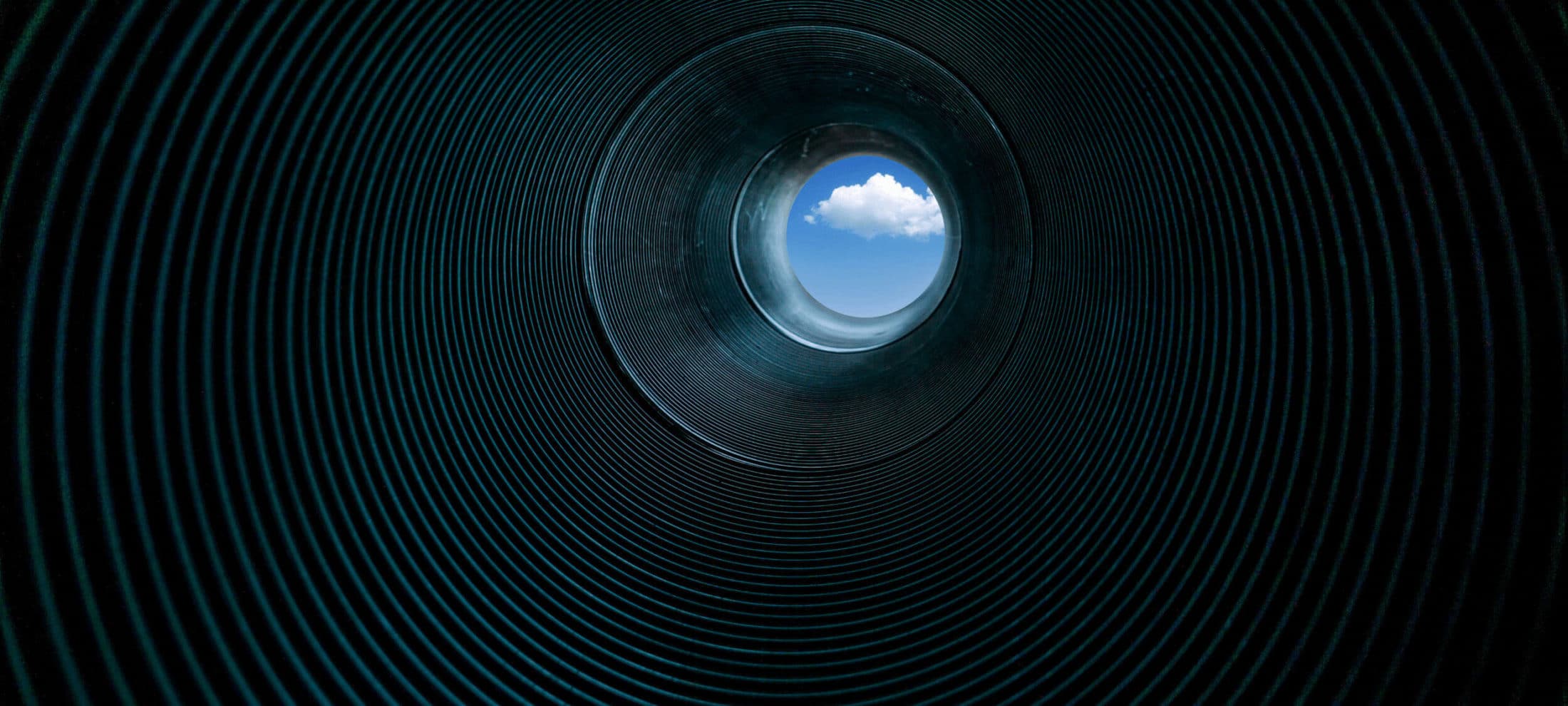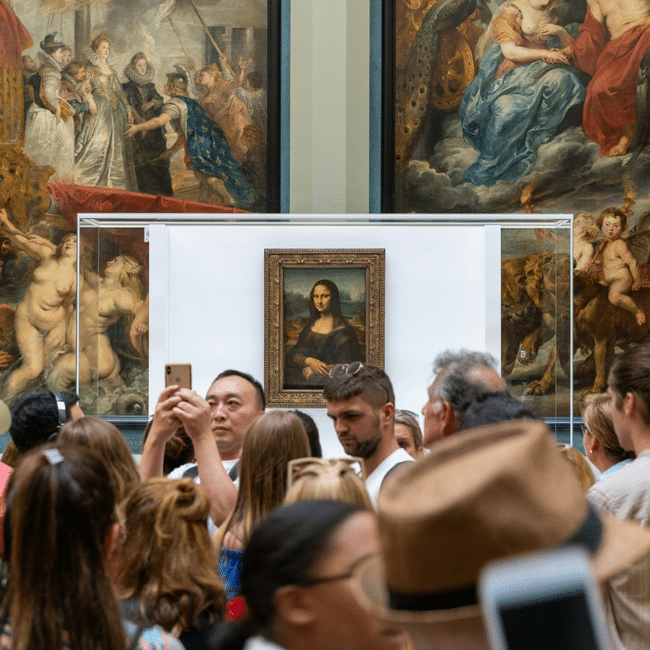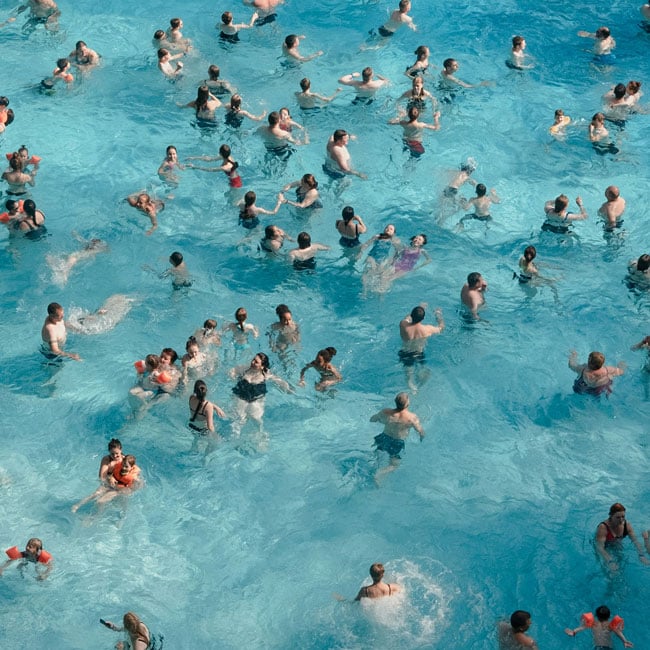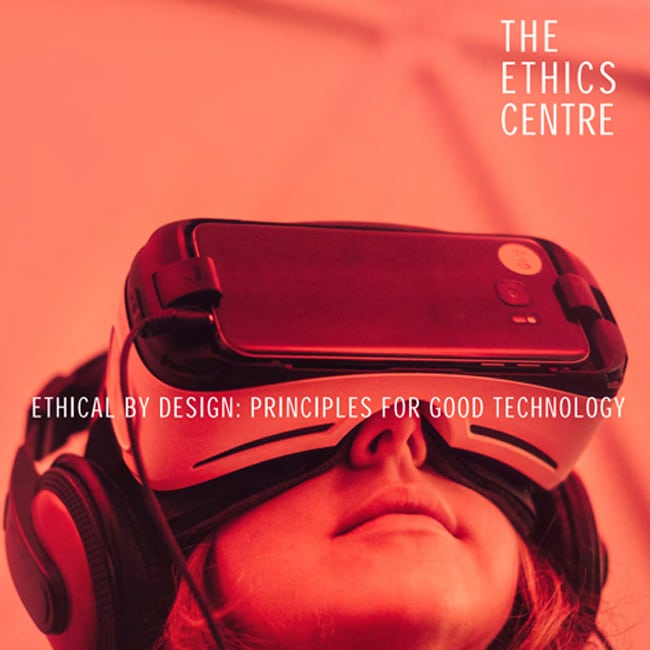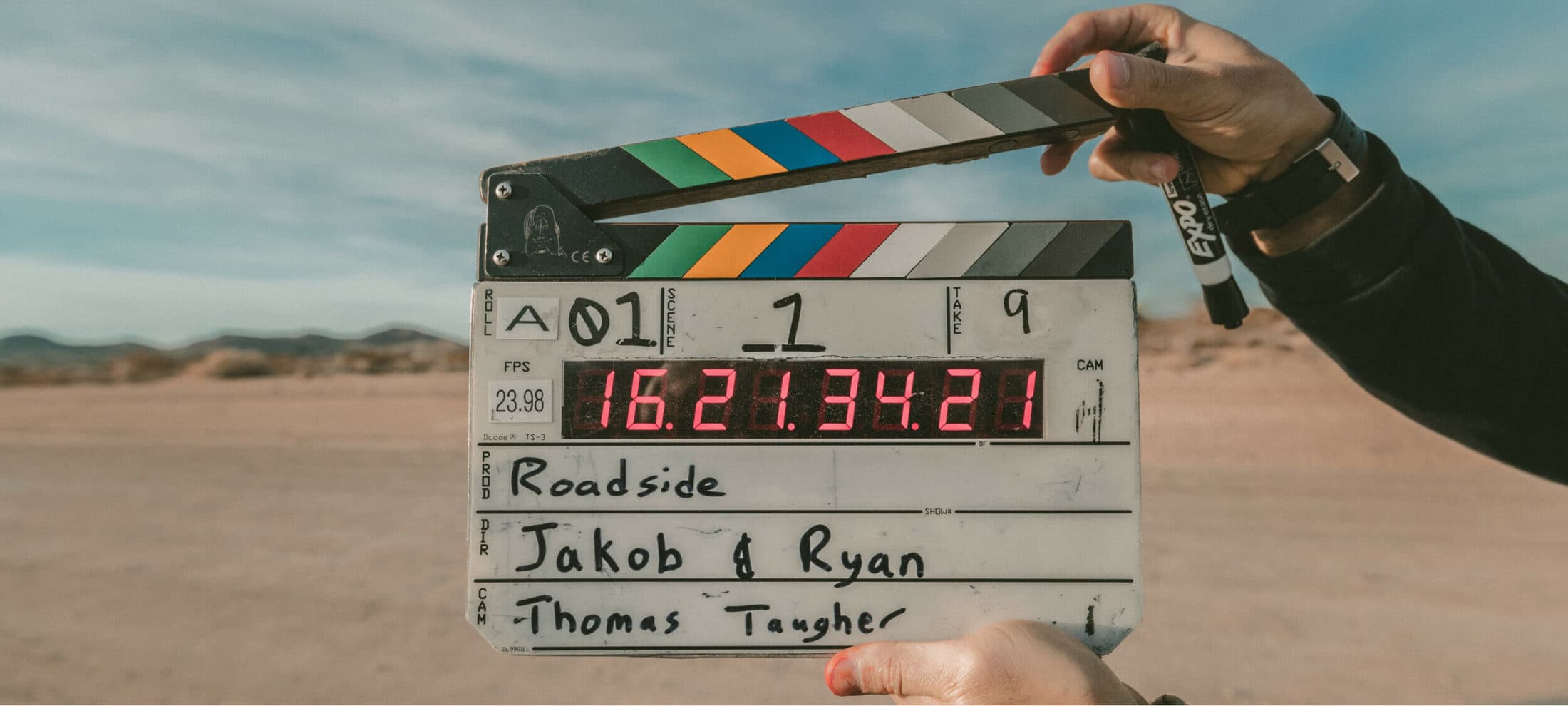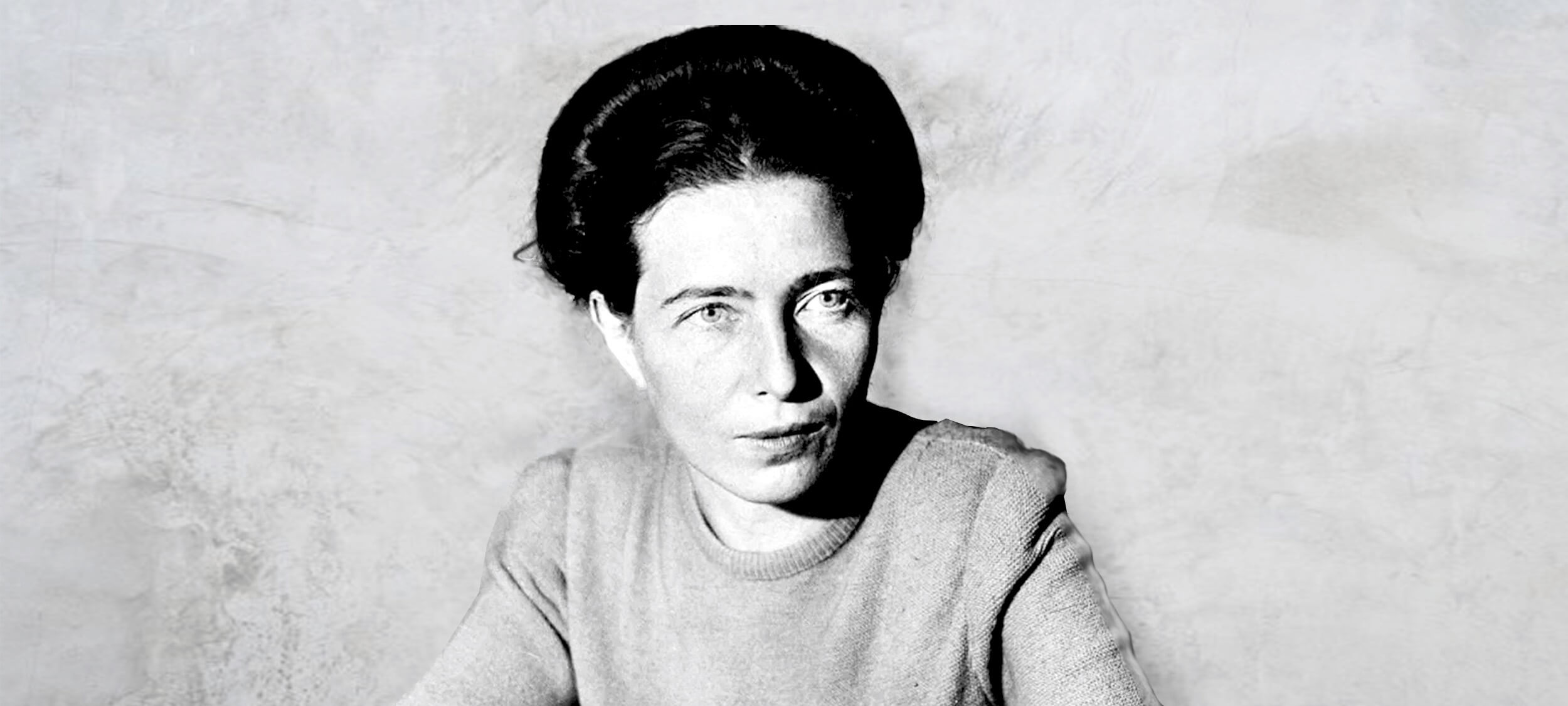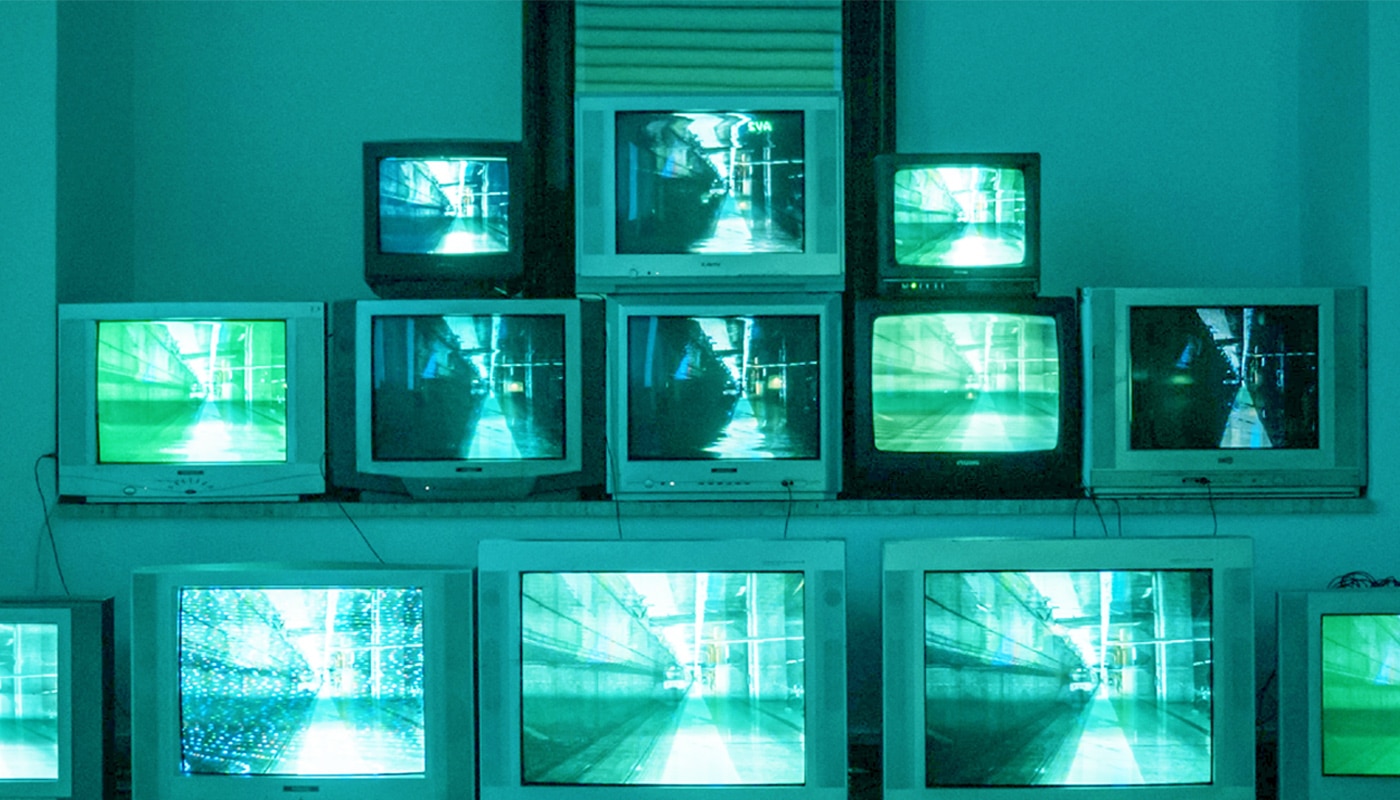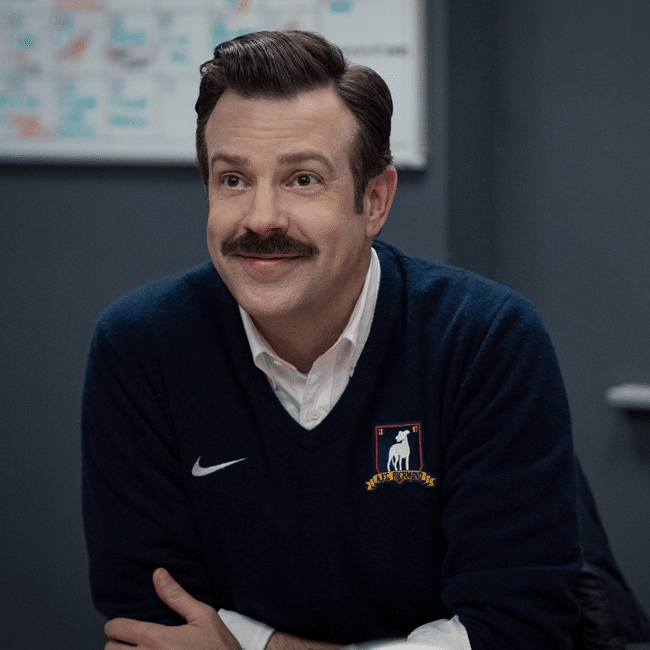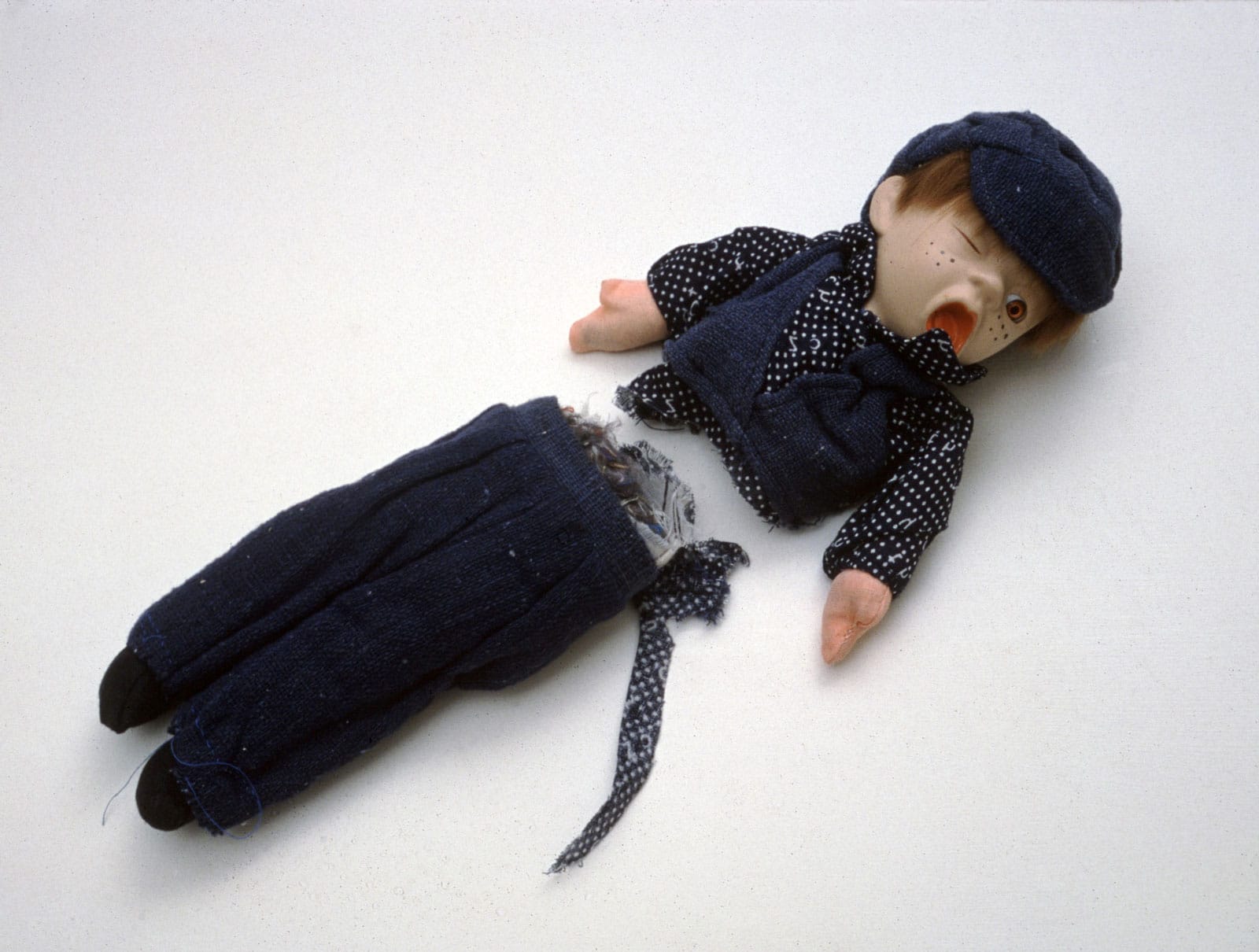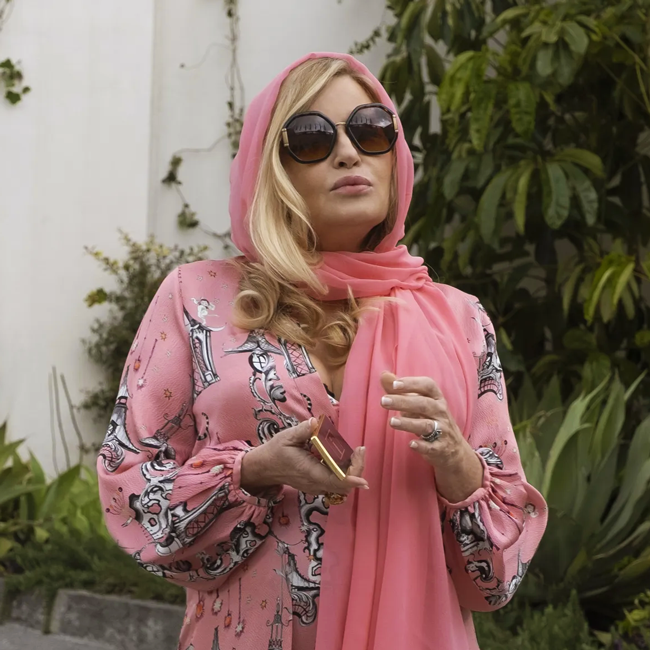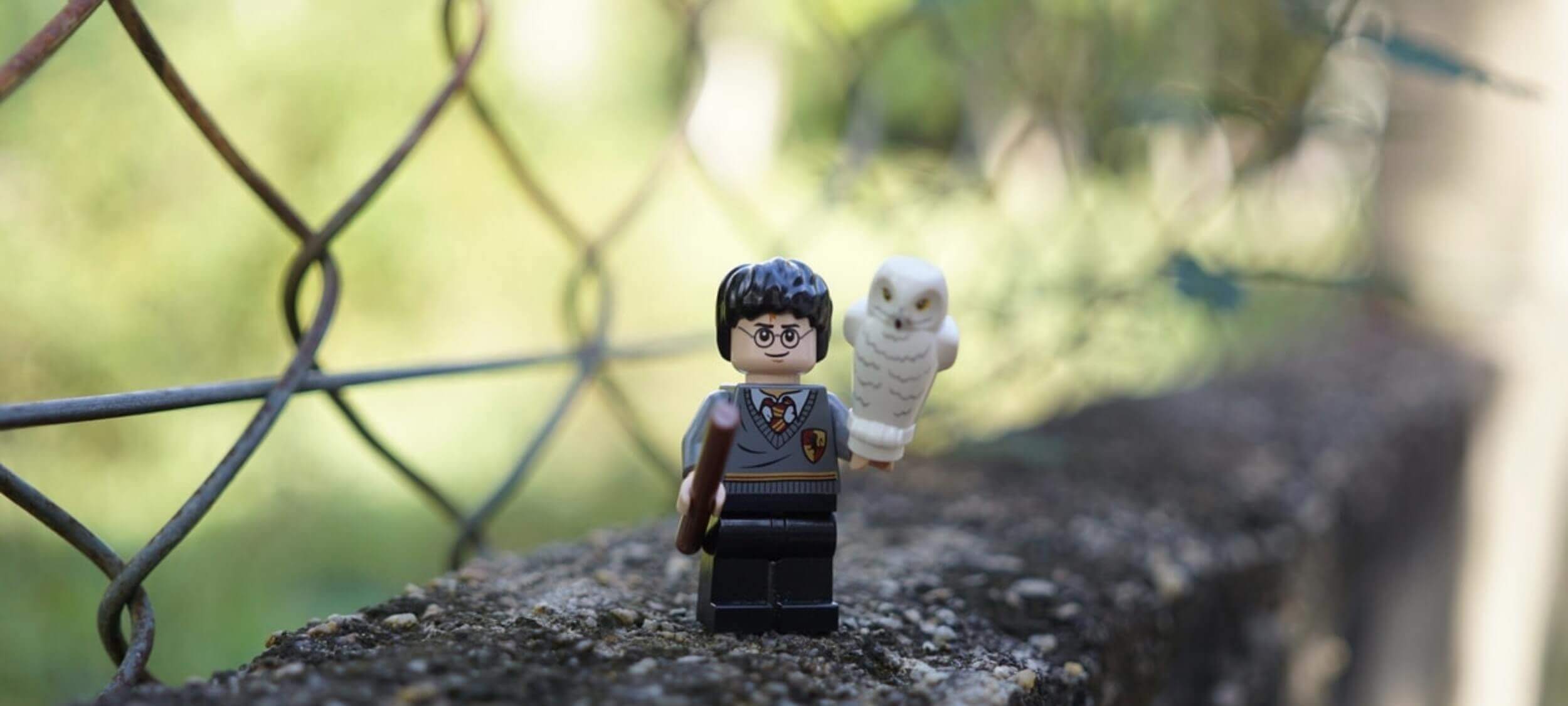11 books, films and series on the ethics of wealth and power
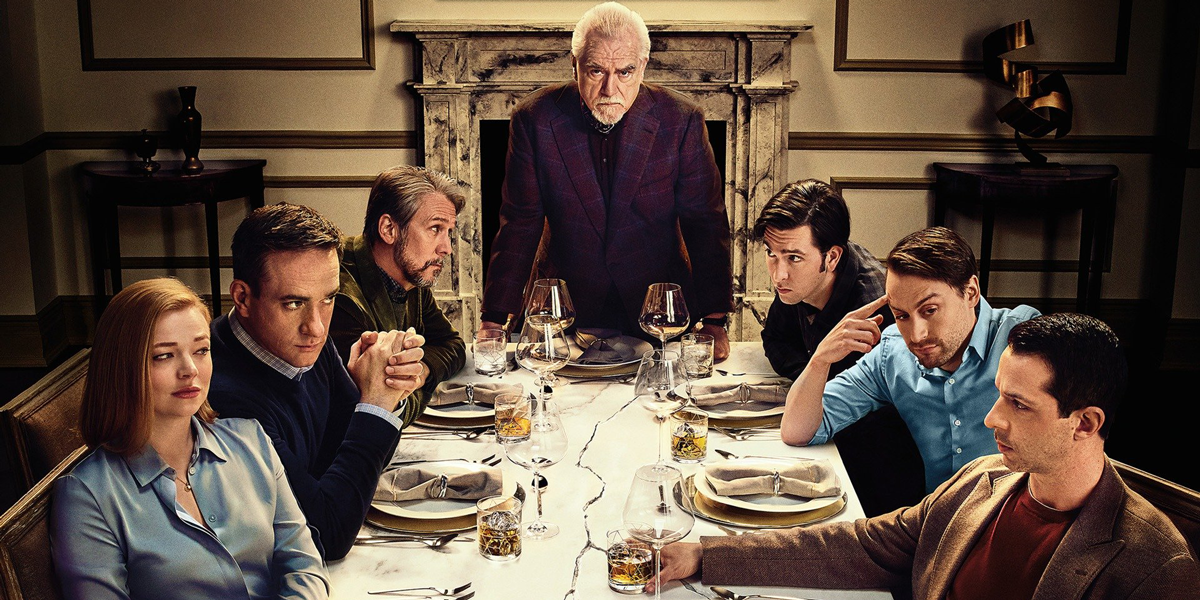
11 books, films and series on the ethics of wealth and power
Opinion + AnalysisSociety + Culture
BY The Ethics Centre 7 DEC 2023
They say power corrupts. And for good reason. Ethics is in constant tension with power. The more power or money someone has, the more they can get away with.
A central concern of money and power is how those who have it should be allowed to use it. And a central concern of the rest of us is how people with money and power in fact do use it.
Here are 11 books, films, tv shows and podcasts that consider the ethics of wealth and power:
Parasite
A Korean comedic thriller film about poverty, the contrast between the rich and poor and the injustice of inequality.
Succession
An American satirical comedy-drama series detailing a powerful global media and entertainment conglomerate. Run by The Roy family, the unexpected retirement of the company’s patriarch ignites a power struggle.
Animal farm – George Orwell
A satirical novel of a group of anthropomorphic farm animals who rebel against their human farmer, hoping to create a society where the animals can be equal, free, and happy.
Generation Less – Jennifer Rayner, FODI
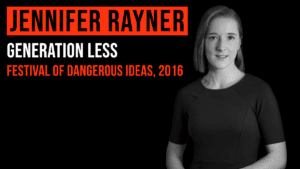
The Colonial Fantasy – Sarah Maddison
A call for a radical restructuring of the relationship between Aboriginal and Torres Strait Islander people and governments.
White Lotus
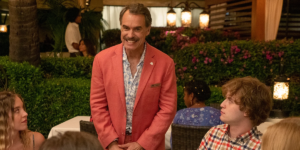
An American dark comedy-drama anthology series, which socially satires the various guests and employees of a resort, exploring what money and power will make you do.
The Deficit Myth – Stephanie Kelton
An exploration of modern monetary theory (MMT) which dramatically changes our understanding of how we can best deal with crucial issues ranging from poverty and inequality to creating jobs, expanding health care coverage, climate change, and building resilient infrastructure.
Squid game
A Korean survival drama series where hundreds of cash-strapped contestants accept an invitation to compete in children’s games for a tempting prize, but the stakes are deadly.
Entitled: How Male Privilege Hurts Women – Kate Manne
A vital exploration of gender politics from sex to admiration, bodily autonomy, knowledge, power and care. In this urgent intervention, philosopher Kate Manne offers a radical new framework for understanding misogyny.
The Lehman Trilogy – Stefano Massini
Originally a novel, and since adapted into a three-act play, The Lehman Trilogy tells the story of modern capitalism through the saga of the Lehman brothers’ bank and their descendants.
Life and Debt podcast
Produced by The Ethics Centre, Life & Debt is a podcast series that dives into debt, what role it has in our lives and how we can make better decisions about it.

Ethics in your inbox.
Get the latest inspiration, intelligence, events & more.
By signing up you agree to our privacy policy
You might be interested in…
Opinion + Analysis
Politics + Human Rights, Society + Culture
What comes after Stan Grant’s speech?
Opinion + Analysis
Relationships, Society + Culture
Joker broke the key rule of comic book movies: it made the audience think
Opinion + Analysis
Science + Technology, Business + Leadership, Society + Culture
AI might pose a risk to humanity, but it could also transform it
Opinion + Analysis
Politics + Human Rights, Business + Leadership, Society + Culture
Our dollar is our voice: The ethics of boycotting
BY The Ethics Centre
The Ethics Centre is a not-for-profit organisation developing innovative programs, services and experiences, designed to bring ethics to the centre of professional and personal life.
Whose fantasy is it? Diversity, The Little Mermaid and beyond

Whose fantasy is it? Diversity, The Little Mermaid and beyond
Opinion + AnalysisSociety + CultureRelationships
BY Joseph Earp 20 NOV 2023
The original The Little Mermaid, an animated fable about a young woman searching – literally – for her voice, has what may seem like only a loose relationship with reality.
Sure, the film is filled with themes of yearning, the desire for autonomy, and a struggle for independence, all of which still resonate deeply with the lived experience of its target audience of young women. But it’s also populated with a singing fish, a cursed sea witch, and a range of colourful, deeply fantastical supporting characters.
But in our increasingly divided age, fantasy is not a simple proposition anymore. Just look at the culture war that the CGI-saturated remake of The Little Mermaid has been dragged into, with the film facing “backlash” from those who have argued that the casting of a black Ariel (Halle Bailey) represents a break from “reality”. Their argument – that this new Ariel is not the one they grew up with, a premise that rests on the idea that there is a “real” Ariel to be deviated from.

These arguments are, in essence, arguments about the nature of fantasy – about how fantastical these stories are allowed to be. Fantasy authors can do anything. So what should they do?
How much fantasy is allowed?
The Little Mermaid is not the only modern fantasy story that has been plunged into debates around diversity and representation. The characters of Rey and Rose Tico from Disney’s new Star Wars trilogy faced significant backlash for being female, while the series’ black Stormtrooper, Finn, was criticised as breaking the canon. Stormtroopers were clones, went the argument – so how could one of them be black? Indeed, racist backlashes against casting in fantasy have become so commonplace that Moses Ingram, who played the villainous Reva Sevander in the Obi-Wan Kenobi miniseries, started sharing some of the vile messages that she received.
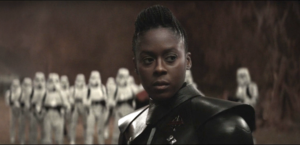
Those responsible for these backlashes tend to argue that the casting of diverse actors “breaks canon”, and disrupts storytelling rules. Some fans will argue that as Stormtroopers are always white in the world of the Star Wars story, they always must be. This was the explanation for the backlash that met the casting of diverse actors in the new Lord of the Rings series, The Rings of Power – Tolkien’s world was white, went the argument, so any story told in that world should be too. Of course, these “fans” do not acknowledge the possibility that the canon of these stories could be racist, and that breaking the canon might be morally necessary. They merely hold to the story as it was written.
This is an argument about fantasy: about how “real” these stories should be. Fantasy authors can do anything, tell any story, infuse their characters with magical explanations that fly in the face of reality. But they do still have to abide but certain rules. No-one would enjoy the world of Hogwarts if J.K. Rowling constantly threw up magical explanations that defied one another to advance the plot. There needs to be some consistency; some “reality”.
Those who cry foul when diverse actors are cast in fantasy do so because they have smuggled a bad ethical argument into one about consistency.
They are making an ethical claim – they do not want to see diverse communities in their art – and pretending it is an aesthetic claim – that they are talking about stories, not about ethics.
In at least some cases, we can assume that this is just a bad faith argument: that these people know in our modern age that they cannot make an openly racist remark, and so scratch around in the world of aesthetics to disguise their bigotry. But even if these people really think that they’re talking about aesthetics, the mistake is to assume that ethics and aesthetics easily pull apart.
Your dreams aren’t divorced from the real world
In her landmark essay The Right To Sex, the philosopher Amia Srinivasan explores the moral weight of aesthetic choices. In her case, she was exploring those who express sexual preference – cis men who desire a certain kind of woman, for instance, with a certain body. But her conclusions are helpful for us here too.
In essence, Srinivasan wants to balance the freedom to choose – people should be able to desire whom they want to desire, and not be forced to change their desires by others – with the idea that some choices are bigoted or small-minded in some way – say, the person who only desires Asian women, or the person who doesn’t desire any Asian women at all.
What Srinivasan encourages is an interest in one’s own desires. She suggests people explore and understand why they want what they want, and to be aware that sometimes those wants can come from bad, unethical places. In essence, Srinivasan made it clear that purely aesthetic choices are actually ethical choices – that things that seem “merely a matter of taste” can actually come from bigotry.
So it goes with fantasy. The fantasy genre is one of dreams; of pure imagination. But that imagination is born from the real-world. And our real-world contains bigotry and hate.
Fantasy writers dream, but they dream in a way that is influenced by morals, preferences, and real-world concerns.
This isn’t just imaginative play. This is play that is responsive to the real world. And as such, ethics should remain a concern. There are people out there who say that they genuinely desire a white Ariel – that seeing a Caucasian mermaid is of tantamount importance to them. What Srinivisan teaches us, is that we do not need to see this desire as emerging from a vacuum. It’s not “just” taste. It’s taste formed from a society that for too long has prioritised white bodies.
It’s like the philosopher Regina Swanson writes.: “[Fantasy] writers bring form to formlessness, creating a narrative that arises from the deep inner places of the mind,” she has put it. “As such, fantasy can reveal our collective hopes, dreams, and nightmares.” Those hopes, dreams, and nightmares aren’t “just” fantasies. They’re meaningfully real.

Ethics in your inbox.
Get the latest inspiration, intelligence, events & more.
By signing up you agree to our privacy policy
You might be interested in…
Opinion + Analysis
Relationships, Society + Culture
Barbie and what it means to be human
Opinion + Analysis
Health + Wellbeing, Relationships
LGBT…Z? The limits of ‘inclusiveness’ in the alphabet rainbow
Big thinker
Politics + Human Rights, Relationships
Big Thinker: Mary Wollstonecraft
Explainer
Relationships
Ethics Explainer: Vulnerability
BY Joseph Earp
Joseph Earp is a poet, journalist and philosophy student. He is currently undertaking his PhD at the University of Sydney, studying the work of David Hume.
Life and Shares

Thinking about investing? Chances are, you’re already playing the game. This new podcast unpicks the share market so you can better understand how the system works.
Did you know that some trading apps use the same psychological tricks as gambling apps? That the big players in financial services can pay to get “privileged access” to the ASX?
Life and Shares is a podcast from The Ethics Centre about the share market. Even if you don’t actively invest, chances are that you are already connected to the share market; as a taxpayer in Australia, a significant amount of your superannuation is already being traded.
In this four-part series, hosted by The Ethics Centre’s Cris Parker, we’ve assembled people from different industries to help you understand the rules of the game so you can make informed decisions. We’re looking beyond the jargon to unpack how the system works and what ethical issues you could – and should – consider if you decide to play.
Some may tell you they can pick a winning share. This series unpicks the share market so that you can make decisions you’ll be proud of.
Available to listen now on Spotify and Apple Podcasts.
This podcast is presented by The Ethics Centre. Our work is made possible by donations including the generous support of Ecstra Foundation – helping to build the financial wellbeing of Australians. This series follows the popular first season, Life and Debt.
Life and Shares Podcast Trailer
Whats inside the guide?
EPISODES
EPISODE ONE: PEELING BACK THE LABEL
Let’s break down the jargon: starting with investor classifications.
Did you know that your level of wealth impacts how you can invest in the share market? In this episode, we hear from RMIT Associate Professor Chris Berg who thinks it’s “deeply unethical” that retail investors (‘mum and dad’ investors) don’t have access to the kind of products that rich people do and so are shut out of some of the most lucrative and risky investments… but accountants say there’s a good reason for that.
We also learn about the murky areas of ‘ethical’ and ‘sustainable’ investing and how it differs from ‘responsible’ investing. If an Exchange Traded Fund (ETF) is labelled sustainable, is it irresponsible for it to have a large holding in a fossil fuel company? Is ESG reporting the best way to judge which companies are good to invest in?
GUESTS:
- Chris Berg, Associate Professor at RMIT University and Director and Co–founder of the RMIT Blockchain Innovation Hub
- Susheela Peres da Costa, Principal at The Stewardship Centre
EPISODE TWO: WHO'S RUNNING THE SHOW?
If video killed the radio star, have brokerage apps killed the stockbroker? What’s the role of robo-advisers? And how are algorithms shaping the marketplace?
Did you know that the big players in financial services can pay to get “privileged access” to the ASX? We ask Paul Lajbcygier from the Monash Data Futures Institute, is that fair?
We also hear from UNSW Professor Gigi Foster who thinks greed and profit make the market go round – and that’s not a bad thing. But on the other hand, she acknowledges there’s a growing class of people who don’t work for their wages – they just move their investments around.
GUESTS:
-
-
- Gigi Foster, Professor with the School of Economics at the University of New South Wales
- Paul Lajbcygier, Computation Finance expert at the Monash Data Futures Institute
-
EPISODE THREE: IS TRADING GAMBLING?
For the first two months of COVID, nearly 5,000 Australians opened an online trading account… every day. Eighty percent of them lost money.
So, is trading gambling? We speak with a clinical psychologist who’s concerned about the lack of awareness and resources for people addicted to trading. We also speak with co-founder of the International Day Trading Academy Cameron Buchanan, who admits that while trading is gambling, he thinks there’s an essential difference.
GUESTS:
- Cameron Buchanan, Co-founder of the International Day Trading Academy
- Anonymous Guest, Clinical Lead at a gambling treatment centre
Listen to Ep 3 on Apple or Spotify now.
EPISODE FOUR: THE POWER OF PERSUASION
Humans aren’t rational… and yet so much economic modelling assumes we are.
In this episode, we look at a Canadian experiment that investigated the ‘gamification’ of investment apps… and how one minor tweak to the app saw people increase the number of trades by a whopping 40%.
We meet behavioural finance specialists Angel Zhong from RMIT University and Ravi Dutta Powell from The Behavioural Insights Team, who explain how cognitive biases impact how we assess risk and make investment decisions.
GUESTS:
- Angel Zhong, Associate Professor of Finance, RMIT University
- Ravi Dutta-Powell, Senior Advisor, The Behaviour Insights Team
Festival of Dangerous Ideas (FODI)

Catch up on over ten years of bold and challenging ideas from some of FODI's most disruptive thinkers
Since 2009 the Festival of Dangerous Ideas, or FODI to its fans, has curated thought-provoking topics and new approaches to wicked problems. FODI brings to light important conversations that push the boundaries of conventional thought, challenging thinking on some of the most persevering and difficult issues of our time.
Delve into over 10 years’ worth of dangerous ideas. Hear from our festival alumni – the world’s best experts, innovative thinkers and mischief makers – as they share provocative ideas and conversations that encourage debate and critical thinking.
It’s time to get uncomfortable…
Available on Apple, Spotify, or whatever you get your podcasts.
But how do you know? Hijack and the ethics of risk

But how do you know? Hijack and the ethics of risk
Opinion + AnalysisRelationshipsSociety + Culture
BY Joseph Earp 18 OCT 2023
Hijack, the new Idris Elba-starring miniseries, opens with every airline passenger’s nightmare – a bullet, found in the bathroom of a plane. Within moments, things go from bad to worse.
The ragtag group of heroes, a collection of passengers led by Sam Nelson (Elba), a corporate business negotiator, find themselves in the middle of a hijacking plot, surrounded by criminals, and unable to get help from those down on the ground who, we quickly learn, are ensnared in the plot themselves.
Such a format is not necessarily new – television and film have been littered with stories of hostile airline takeovers, from the big brash action of Air Force One, to the real-world horror of United 93, a tragic retelling of the 9/11 attacks. But what sets Hijack apart is its rapidly escalating sense of dread. Time and time again, Sam and his fellow passengers are faced with impossible decisions, and time and time again, they are foiled. That opening nightmarish feel only deepens – you know those dreams where everything goes wrong; where you are powerless; where the adversaries keep mounting? That’s key to Hijack’s tone, a story of ever-escalating horrors, through which Sam must try to keep himself – and his ethical code – alive.
Indeed, this mounting sense of risk means that Hijack poses an interesting question about ethical deliberation under fire. Sam, who is well-versed in negotiation, but not well-versed in negotiation where the stakes are so high, must repeatedly make rapid-fire decisions. Does he send a text to his wife? Does Sam continue his attempted revolt after he discovers that the hijackers know who his family are, and will kill them if anything goes wrong? Does Sam rush the cockpit? And how responsible will he ethically be if he fails? How much blood is on his hands?
Decision making turned up to 11
The problem of ethical decision-making under fire is essentially the problem of the difference between theory and practice. Sit people down and ask them what the right thing to do is, give them time, don’t hurry them, and psychological studies show that they’ll have a better chance of choosing the ethical answer.
In a famous experiment known as The Good Samaritan, a group of priests-in-training were told to head across a university campus to deliver a speech on the importance of helping others. Some of these priests were given ample time to make it across the campus; others were told they had to rush. Along their trip, the experimenters planted a person in need – an actor, who feigned being sick, and asked for help. The majority of those priests who had been told they weren’t in a rush stopped to help. But the priests who had to move fast, and were stressed and distracted, largely ignored the actor – even though they were literally on their way to give a speech on how to care for their fellow human beings.
The experiment shows that the more that pressure increases – particularly time pressure – the less likely we are to do the right thing. Which poses a significant problem for ethical training. How can you fight against the forces of a chaotic world?
Philosopher Iris Murdoch was aware of the everyday pressures that we meet constantly. For that reason, she considered ethical training a process which prepares us to act unthinkingly. The more we make the right decisions when we do have time, the more likely we are to shape our instincts to be more ethical, and therefore act virtuously when we don’t have time. In this way, Murdoch collapses theory into practice, treating them not as divorced from one another, but with theory informing practice.
Which is a view that Hijack supports. Sam’s cushy day job has given him an unusual set of skills that he himself didn’t even realise that he had. All that work he conducted for years? It was training for this moment.
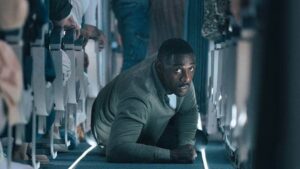
The ethics of risk
A related issue pertaining to theory and practice is the unknowability of the future. Thought experiments and ethical dilemmas conducted theoretically can have clear right or wrong answers, based on outcomes. But when we’re actually moving through the world, we’re blind to these outcomes. More often than not, we’re stumbling through the ethical world, making decisions based on the hope that things will work out, but never actually knowing if they will.
This is the ethics of risk, extensively covered by the philosopher Sven Ove Hansson. According to Hansson, “risk and uncertainty are such pervasive features of practical decision-making that it is difficult to find a decision in real life from which they are absent.”
Hansson’s solution to this problem is to consider “fair exchanges of risk.” He forgoes the idea that we will never be perfect moral creatures. Because the world is uncertain, we can only ever move towards good ethical actors. There’s no way that we can ever always do the right thing, and nor should we expect ourselves to. Instead, we must try. That is the important part.
So it goes in Hijack. Sam is a flawed main character, who frequently makes errors while trying to save those around him. But we, as audience members, forgive him for this. We don’t judge him for the plans that fail. We see his movement towards good behaviour, and that’s what matters.
In that way, we can also see theory and practice moved out of contention with each other. Theory is the goal; practice is the action. We’ll never live in a fully theoretic state. But what Hijack tells us, is in the face of that impossibility, we should not throw up our hands. We should instead keep moving towards theory – a spot on the horizon that is forever escaping us, but that we never stop chasing.
Ethics in your inbox.
Get the latest inspiration, intelligence, events & more.
By signing up you agree to our privacy policy
You might be interested in…
Opinion + Analysis
Relationships
Ethics Explainer: Peter Singer on charitable giving
Opinion + Analysis
Relationships, Science + Technology
Should you be afraid of apps like FaceApp?
Opinion + Analysis
Business + Leadership, Relationships, Science + Technology, Society + Culture
Who does work make you? Severance and the etiquette of labour
Opinion + Analysis
Relationships
Is existentialism due for a comeback?
BY Joseph Earp
Joseph Earp is a poet, journalist and philosophy student. He is currently undertaking his PhD at the University of Sydney, studying the work of David Hume.
The Bear and what it means to keep going when you lose it all

The Bear and what it means to keep going when you lose it all
Opinion + AnalysisRelationshipsSociety + Culture
BY Joseph Earp 1 SEP 2023
Fittingly, for a show set in the brutal, immediate environment of a commercial kitchen, The Bear opens with a brutal, immediate metaphor for grief.
In the opening scene of the show, Carmy (Jeremy Allen White) traverses a bridge in the middle of the night. We know nothing of this man yet. He moves fearfully, slowly. And in a moment, we see why – there’s a vicious bear across from him, reared up and snarling, and Carmy is desperately, fearfully trying to placate it.
Within an episode, the symbolism is obvious. The bridge represents what we will soon come to see as an uncomfortable, dangerous transition Carmy has been thrust into – he has left behind a world of chef superstardom, in order to take over ownership of the middling sandwich shop left to him after the suicide of his brother. And the bear? It is the manifestation of the grief he has been left with; this terrible, unpredictable thing, that he has no idea how to confront, or how to contain.
On its surface, The Bear is about kitchen life. It nails perfectly the stress; the heat; the ugly mechanics of what goes into our food. Anthony Bourdain was right – when you eat out, and get served a dish on a perfectly clean plate, what you haven’t seen is the often literal blood, sweat, and tears that produces it. The Bear spends its two seasons documenting those bodily fluids in sometimes gratuitous detail.
But as its opening scene establishes, what The Bear is really about is untethering. More specifically, the way that grief untethers – the way it throws us back into a world we thought we knew but is now suddenly unfamiliar to us, as we stand under its hot kitchen lights, naked and afraid.
What grief does to us
Carmy is a man with his own dark past. In flashbacks, we see him abused by kitchen bosses. We learn more about Michael, his dead brother, who struggled with addiction. And, drip by drip, we learn about the family dynamics and pressures that made Michael both who he was, and who he died as, and who Carmy once was.

What we also learn is the way that grief can provide a sort of brutal reset of personhood. When we lose someone close to us – whether it be a family member, as in the case of Carmy, or a lover, or a friend – we speak often of losing something of ourselves too.
This cuts to the beauty of human interaction – something that the philosopher Derek Parfit often wrote about. Love, be it familial, platonic, or romantic, erodes the boundaries between the self and other. Our natural inclination as humans to learn about each other, to take on the cares and emotional states of those close to us, to constantly empathise and put ourselves in other’s shoes, makes us less like distinct individual entities, and more like what the philosopher Anette Baier once called “heirs and successors to those that we care about.”
This is beautiful, yes, but it also makes us deeply vulnerable. It means that death and suicide doesn’t just have the power to remove one human being from the world. It means that death and suicide has the power to remove part of us as well.
The philosopher Bryanna Moore has written about this in her paper ‘The Three Moral Dimensions of Grief.’ Moore understands human beings as relationally defined. She takes a sort of refined, tweak “no self” view of personal identity. On her reading, we are not hermetically sealed entities, with some stable, unchanging identity. We are who we are because of who we love, hate, and spend time with.
So for Moore, grief “reveals something vital about the way in which we relate to ourselves around us.” When Carmy loses Michael, he is forced into what Moore calls “a powerful reassessment and reevaluation of the self’s relation to the world.” This explains in great part why Carmy decides to take on Michael’s restaurant. It’s not just guilt that makes him want to help the brother who he could not help in life. It’s that he now no longer knows who he is. He is fresh and untethered. There is a gap, where Michael once was, but there’s also a gap where Carmy once was.
The moral value of grief
Robert C. Soloman, another philosopher who has written extensively about grief, argues in tandem with Moore that grief’s power to untether us makes it, to some extent, “morally excellent.” Soloman starts with the idea that grief is morally obligatory. As in, if someone we care about dies, and we do not grieve, then we have done something immoral – we have failed in some way. Grief is a necessity; it isn’t just some replacement of the love we once felt towards the departed, it is that love, taking on a new form.
For Soloman, the excellence comes from the way that grief represents an “emotional process.” It’s not just a feeling, a discrete emotional state that comes over us. It’s something that builds, grows and changes. This, we quickly find, is true with Carmy. We see him move constantly through different stages and states of grief, at times anger, at other times remorseful; always on the move, and always finding himself plunged into new emotions.
As to what kind of process grief is, it’s one of reconstruction. When we are untethered by loss, we are then forced to get to work on rebuilding ourselves. Grief heightens and sharpens us, makes us present in activities and choices. Carmy finds himself suddenly lit up by chefing in a way that he has not been before, dealing with the chaos of his new restaurant, but immersed in it, and learning new things about himself as a result.
It’s Moore who points out that rebuilding oneself need not always be positive, or moral. After all, there are many people who respond to traumatic events by becoming a new type of person, but a worse one – meaner, angrier, less forgiving. Grief gives us a blank slate, and it’s up to us what we then build on top of that slate.
The goodness of grief, then, comes from the way that it makes us present; intentional. So often we move through life making choices passively; letting things happen to us. When we are left with nothing, and we must rebuild, every choice becomes heightened – we become aware of them, in a way that we were not before.
Grief can wake us up from a stupor, shake us out of immoral patterns that we did not even realise that we had fallen into.
This, we see, happen with Carmy. Slowly, sure. He makes mistakes. He hurts others. He fails. But he is, after his hard reset, aware. Paradoxically – beautifully – a death has made him, quite to his surprise, suddenly and thrillingly alive. In that way, Michael’s passing wasn’t just a loss. It was, against the odds, a gift. And there is beauty in the way that Carmy takes it in his pale, open hands.
Ethics in your inbox.
Get the latest inspiration, intelligence, events & more.
By signing up you agree to our privacy policy
You might be interested in…
Opinion + Analysis
Business + Leadership, Relationships
Workplace romances, dead or just hidden from view?
Opinion + Analysis
Business + Leadership, Relationships
Moving work online
Opinion + Analysis
Health + Wellbeing, Relationships
LGBT…Z? The limits of ‘inclusiveness’ in the alphabet rainbow
Opinion + Analysis
Politics + Human Rights, Relationships
Free markets must beware creeping breakdown in legitimacy
BY Joseph Earp
Joseph Earp is a poet, journalist and philosophy student. He is currently undertaking his PhD at the University of Sydney, studying the work of David Hume.
Barbie and what it means to be human

Barbie and what it means to be human
Opinion + AnalysisRelationshipsSociety + Culture
BY Simon Longstaff 7 AUG 2023
It was with a measure of apprehension that I recently travelled to the cinema to watch Greta Gerwig’s Barbie.
I was conscious of being an atypical audience member – with most skewing younger, female and adorned in pink (I missed out on all three criteria). However, having read some reviews (both complimentary and critical) I was expecting a full-scale assault on the ‘patriarchy’ – to which, on appearances alone, I could be said to belong.
Warning: This article contains spoilers for the film Barbie
However, Gerwig’s film is far more interesting. Not only is it not a critique of patriarchy as a singular evil, but it raises deep questions about what it means to be human (whatever your sex or gender identity). And it does this all with its tongue firmly planted in the proverbial cheek; laughing not only at the usual stereotypes but, along the way, at itself.
The first indication that this film intends to subvert all stereotypes comes in the opening sequence – an homage to the beginning of Stanley Kubrick’s iconic film, 2001: A Space Odyssey. Rather than encountering a giant black ‘obelisk’ that reorients the history of humankind, a group of young girls wake to find a giant Margot Robbie looming over them in the form of ‘Stereotypical Barbie’. Until that time, the girls have been restricted to playing with baby dolls and learning the stereotypical roles allotted to women in a male-dominated world.
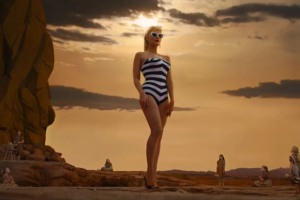
What happens next is instructive. Rather than simply putting aside the baby dolls in favour of the new adult form represented by Barbie, the girls embark on a savage work of destruction. They dismember the baby dolls, crush their skulls, grind them into the dirt. This is not a gentle awakening into something that is more ‘pure’ than what came before. From the outset, we are offered an image of humanity that is not one in which the divide between ‘good’ and ‘bad’, ‘dominant’ and submissive’, ‘peaceful’ and ‘violent’ is neatly allocated in favour of one sex or another. Rather, virtues and vices are shown to be evenly distributed across humanity in all its variety.
That the violent behaviour of the little girls is not an aberration is made clear later in the film when we are introduced to ‘Weird Barbie’. She lives on the margins of ‘Barbieland’ – both an outcast and a healer – whose status has been defined by her broken (imperfect) condition. The damage done to ‘Weird Barbie’ is, again, due to mistreatment by a subset of girls who treat Barbie in the same way depicted in the opening scenes. Then there is ‘Barbieland’ itself – a place of apparent perfection … unless you happen to be a ‘Ken’. Here, the ‘Patriarchy’ has been replaced by a ‘Matriarchy’ that is invested with all of the flaws of its male counterpart.
In Barbieland, Kens have no status of their own. Rather, they are mere cyphers – decorative extensions of the Barbies whom they adorn. For the most part, they are frustrated by, but ultimately accepting of, their status. The conceit of the film is an obvious one: Barbieland is the mirror image of the ‘real world,’ where patriarchy reigns supreme. Indeed, the Barbies (in all their brilliant variety) believe that their exemplary society has changed the real world for the better, liberating women and girls from all male oppression.
Alas, the real world is not so obliging – as is soon discovered when the two worlds intersect. There, Stereotypical Barbie (suffering from a bad case of flat feet) and Stereotypical Ken are exposed to the radically imperfect society that is the product of male domination. Much of what they find should be familiar to us. The film does a brilliant job of lampooning what we might take for granted. Even the character of male-dominated big business comes in for a delightful serve. The target is Mattel (which must be commended for its willingness to allow itself to be exposed to ridicule – even in fictional form).
Unfortunately, Ken (played by Ryan Gosling) learns all the wrong lessons. Infected by the ideology of Patriarchy (which he associates with male dominance and horse riding) he returns to Barbieland to ‘liberate’ the Kens. The contagion spreads – reversing the natural order; turning the ‘Barbies’ into female versions of the Kens of old.
Fortunately, all is eventually made right when Margot Robbie’s character, with a mother and daughter in tow, returns to save the day.

But the reason the film struck such a chord with me, is because it raises deeper questions about what it means to be human.
It is Stereotypical Barbie who finally liberates Stereotypical Ken by leading him to realise that his own value exists independent of any relationship to her. Having done so, Barbie then decides to abandon the life of a doll to become fully human. However, before being granted this wish by her creator (in reality, a talented designer and businesswoman of somewhat questionable integrity) she is first made to experience what the choice to be human entails. This requires Barbie to live through the whole gamut of emotions – all that comes from the delirious wonder of human life – as well as its terrors, tragedies and abiding disappointments.
This is where the film becomes profound.
How many of us consciously embrace our humanity – and all of the implications of doing so? How many of us wonder about what it takes to become fully human? Gerwig implies that far fewer of us do so than we might hope.
Instead, too many of us live the life of the dolls – no matter what world we live in. We are content to exist within the confines of a box; to not think or feel too deeply, to not have our lives become more complicated as when happens when the rules and conventions – the morality – of the crowd is called into question by our own wondering.
Don’t be put off by the marketing puffery; with or without the pink, this is a film worth seeing. Don’t believe the gripes of ‘anti-woke’, conservative commentators. They attack a phantom of their own imagining. This film is aware without being prescriptive. It is fair. It is clever. It is subtle. It is funny. It never takes itself too seriously. It is everything that the parody of ‘woke’ is not.
It is ultimately an invitation to engage in serious reflection about whether or not to be fully human – with all that entails. It is an invitation that Barbie accepts – and so should we.
Ethics in your inbox.
Get the latest inspiration, intelligence, events & more.
By signing up you agree to our privacy policy
You might be interested in…
Explainer
Relationships
Ethics Explainer: Blame
Explainer
Relationships
Ethics Explainer: Moral Absolutism
Opinion + Analysis
Society + Culture, Climate + Environment
Who’s to blame for overtourism?
Explainer
Society + Culture, Politics + Human Rights
Thought experiment: The original position
BY Simon Longstaff
Simon Longstaff began his working life on Groote Eylandt in the Northern Territory of Australia. He is proud of his kinship ties to the Anindilyakwa people. After a period studying law in Sydney and teaching in Tasmania, he pursued postgraduate studies as a Member of Magdalene College, Cambridge. In 1991, Simon commenced his work as the first Executive Director of The Ethics Centre. In 2013, he was made an officer of the Order of Australia (AO) for “distinguished service to the community through the promotion of ethical standards in governance and business, to improving corporate responsibility, and to philosophy.” Simon is an Adjunct Professor of the Australian Graduate School of Management at UNSW, a Fellow of CPA Australia, the Royal Society of NSW and the Australian Risk Policy Institute.
The terrible ethics of nuclear weapons

The terrible ethics of nuclear weapons
Opinion + AnalysisScience + TechnologySociety + Culture
BY Dr. Gwilym David Blunt 7 AUG 2023
“I have blood on my hands.” This is what Robert Oppenheimer, the mastermind behind the Manhattan Project, told US President Harry Truman after the bombs he created were dropped on Hiroshima and Nagasaki killing over an estimated 226,000 people.
The President reassured him, but in private was incensed by the ‘cry-baby scientist’ for his guilty conscience and told Dean Acheson, his Secretary of State, “I don’t want to see that son of a bitch in this office ever again.”
With the anniversary of the bombings this week while Christopher Nolan’s Oppenheimer is in cinemas, it is a good moment to reflect on the two people most responsible for the creation and use of nuclear weapons: one wracked with guilt, the other with a clean conscience.
Who is right?
In his speech announcing the destruction of Hiroshima and Nagasaki, Truman provided the base from which apologists sought to defend the use of nuclear weapons: it “shortened the agony of war.”
It is a theme developed by American academic Paul Fussell in his essay Thank God for the Atom Bomb. Fussell, a veteran of the European Theatre, defended the use of nuclear weapons because it spared the bloodshed and trauma of a conventional invasion of the Japanese home islands.
Military planners believed that this could have resulted in over a million causalities and hundreds of thousands of deaths of service personnel, to say nothing of the effect on Japanese civilians. In the lead up to the invasion the Americans minted half a million Purple Hearts, medals for those wounded in battle; this supply has lasted through every conflict since. We can see here the simple but compelling consequentialist reasoning: war is hell and anything that brings it to an end is worthwhile. Nuclear weapons, while terrible, saved lives.
The problem is that this argument rests on a false dichotomy. The Japanese government knew they had lost the war; weeks before the bombings the Emperor instructed his ministers to seek an end to the war via the good offices of the Soviet Union or another neutral state. There was a path to a negotiated peace. The Allies, however, wanted unconditional surrender.
We might ask whether this was a just war aim, but even if it was, there were alternatives: less indiscriminate aerial attacks and a naval blockade of war materials into Japan would have eventually compelled surrender. The point here isn’t to play at ‘armchair general’, but rather to recognise that the path to victory was never binary.
However, this reply is inadequate, because it doesn’t address the general question about the use of nuclear weapons, only the specific instance of their use in 1945. There is a bigger question: is it ever ethical to use nuclear weapons. The answer must be no.
Why?
Because, to paraphrase American philosopher Robert Nozick, people have rights and there are certain things that cannot be done to them without violating those rights. One such right must be against being murdered, because that is what the wrongful killing of a person is. It is murder. If we have these rights, then we must also be able to protect them and just as individuals can defend themselves so too can states as the guarantor of their citizen’s rights. This is a standard categorical check against the consequentialist reasoning of the military planners.
The horror of war is that it creates circumstances where ordinary ethical rules are suspended, where killing is not wrongful.
A soldier fighting in a war of self-defence may kill an enemy soldier to protect themselves and their country. However, this does not mean that all things are permitted. The targeting of non-combatants such as wounded soldiers, civilians, and especially children is not permitted, because they pose no threat.
We can draw an analogy with self-defence: if someone is trying to kill you and you kill them while defending yourself you have not done anything wrong, but if you deliberately killed a bystander to stop your attacker you have done something wrong because the bystander cannot be held responsible for the actions of your assailant.
It is a terrible reality that non-combatants die in war and sometimes it is excusable, but only when their deaths were not intended and all reasonable measures were taken to prevent them. Philosopher Michael Walzer calls this ‘double intention’; one must intend not to harm non-combatants as the primary element of your act and if it is likely that non-combatants will be collaterally harmed you must take due care to minimise the risks (even if it puts your soldiers at risk).
Hiroshima does not pass the double intention test. It is true that Hiroshima was a military target and therefore legitimate, but due care was not taken to ensure that civilians were not exposed to unnecessary harm. Nuclear weapons are simply too indiscriminate and their effects too terrible. There is almost no scenario for their use that does not include the foreseeable and avoidable deaths of non-combatants. They are designed to wipe out population centres, to kill non-combatants. At Hiroshima, for every soldier killed there were ten civilian deaths. Nuclear weapons have only become more powerful since then.
Returning to Oppenheimer and Truman, it is impossible not to feel that the former was in the right. Oppenheimer’s subsequent opposition to the development of more powerful nuclear weapons and support of non-proliferation, even at the cost of being targeted in the Red Scare, was a principled attempt to make amends for his contribution to the Manhattan Project.
The consequentialist argument that the use of nuclear weapons was justified because in shortening the war it saved lives and minimised human suffering can be very appealing, but it does not stand up to scrutiny. It rests on an oversimplified analysis of the options available to allied powers in August 1945; and, more importantly, it is an intrinsic part of the nature of nuclear weapons that their use deliberately and avoidably harms non-combatants.
If you are still unconvinced, imagine if the roles were reversed in 1945: one could easily say that Sydney or San Francisco were legitimate targets just like Hiroshima and Nagasaki. If the Japanese dropped an atomic bomb on Sydney Harbour on the grounds that it would have compelled Australia to surrender thereby ending the “agony of war”, would we view this as ethically justifiable or an atrocity to tally alongside the Rape of Nanking, the death camps of the Burma railroad, or the terrible human experiments conducted by Unit 731? It must be the latter, because otherwise no act, however terrible, can be prohibited and war truly becomes hell.
Ethics in your inbox.
Get the latest inspiration, intelligence, events & more.
By signing up you agree to our privacy policy
You might be interested in…
Opinion + Analysis
Business + Leadership, Science + Technology
People first: How to make our digital services work for us rather than against us
Reports
Science + Technology
Ethical by Design: Principles for Good Technology
Opinion + Analysis
Society + Culture
Lisa Frank and the ethics of copyright
Opinion + Analysis
Society + Culture
10 films to make you highbrow this summer
BY Dr. Gwilym David Blunt
Dr. Gwilym David Blunt is a Fellow of the Ethics Centre, Lecturer in International Relations at the University of Sydney, and Senior Research Fellow of the Centre for International Policy Studies. He has held appointments at the University of Cambridge and City, University of London. His research focuses on theories of justice, global inequality, and ethics in a non-ideal world.
What is all this content doing to us?

Three years ago, the eye-wateringly expensive television show See aired. Starring Jason Momoa, the budget for the show tapped out at around a million dollars per episode, a ludicrous amount of money even in today’s age.
As to what See is about – well, that’s not really worth discussing. Because chances are you haven’t seen it, and, in all likelihood, you’re not going to. What matters is that this was a massive piece of content that sank without a single trace. Ten years ago, a product like that would have been a big deal, no matter whether people liked it or not. It would have been, regardless of reception, an event. Instead, it’s one of a laundry list of shows that feel like they simply don’t exist.
This is what it means to be in the world of peak content. Every movie you loved as a kid is being rebooted; every franchise is being restarted; every actor you have even a passing interest in has their own four season long show.
But what is so much content doing to us? And how is it affecting the way we consider art?
The tyranny of choice
If you own a television, chances are you have found yourself parked in front of it, armed with the remote, at a complete loss as to what to watch. Not because your choices are limited. But because they are overwhelmingly large.
This is an example of what is known as “the tyranny of choice.” Many of us might believe that more choice is necessarily better for us. As the philosopher Renata Salecl outlines, if you have the ability to choose from three options, and one of them is taken away, most of us would assume we have been harmed in some way. That we’ve been made less free.
But the social scientists David G. Myers and Robert E. Lane have shown that an increase in choice tends to lead to a decrease in overall happiness. The psychologist Barry Schwartz has explained this through what he understands as our desire to “maximalise” – to get the best out of our decisions.
And yet trying to decide what the best decision will be takes time and effort. If we’re doing that constantly, forever in the process of trying to analyse what will be best for us, we will not only wear ourselves down – we’ll also compare the choice we made against the other potential choices we didn’t take. It’s a kind of agonising “grass is always greener” process, where our decision will always seem to be the lesser of those available.
The sea of content we swim in is therefore work. Choosing what to watch is labour. And we know, in our heart of hearts, that we probably could have chosen better – that there’s so much out there, that we’re bound to have made a mistake, and settled for good when we could have watched great.
The big soup of modern life
When content begins to feel like work, it begins to feel like… well, everything else. So much of our lives are composed of labour, both paid and unpaid. And though art should, in its best formulation, provide transcendent moments – experiences that pull us out of ourselves, and our circumstances – the deluge of content has flattened these moments into more capitalist stew.
Remember how special the release of a Star Wars movie used to feel? Remember the magic of it? Now, we have Star Wars spin-offs dropping every other month, and what was once rare and special is now an ever-decreasing series of diminishing returns. And these diminishing returns are not being made for the love of it – they’re coming from a cynical, money-grubbing place. Because they need to make money, due in no small part to their ballooning budgets, they are less adventurous, rehashing past story beats rather than coming up with new ones; playing fan service, instead of challenging audiences. After all, it’s called show business for a reason, and mass entertainment is profit-driven above all else, no matter how much it might enrich our lives.
This kind of nullifying sameness of content, made by capitalism, was first outlined by the philosophers Theodor Adorno and Max Horkheimer. “Culture now impresses the same stamp on everything,” they wrote in Dialectic of Enlightenment. “Films, radio and magazines make up a system which is uniform as a whole and in every part.”
Make a choice
So, what is to be done about all this? We obviously can’t stop the slow march of content. And we wouldn’t even want to – art still has the power to move us, even as it comes in a deluge.
Of course, being more aware of what we consume, and when we consume it, and why won’t stop capitalism. But it will change our relationship with art.
The answer, perhaps, is intentionality. This is a mindfulness practice – thinking about what we’re doing carefully, making every choice with a weight and thrust. Not doing anything passively, or just because you can. But applying ourselves fully to what we decide, and accepting that is the decision that we have made.
The filmmaker Jean-Luc Godard once said that at the cinema, audience goers look up, and at home, watching TV, audience goers look down. As it turns out, we look down at far too much these days, regardless of whether we’re at home or in the cinema. We take content for granted; allow it to blare out across us; reduce it to the status of wallpaper, just something to throw on and leave in the background. It becomes less special, and our relationship to it becomes less special too.
The answer: looking up. Of course, being more aware of what we consume, and when we consume it, and why won’t stop capitalism. But it will change our relationship with art. It will make us decision-makers – active agents, who engage seriously with content and learn things through it about our world. It will preserve some of that transcendence. And it will reduce the exhausting tyranny of choice, and make these decisions feel impactful.
Ethics in your inbox.
Get the latest inspiration, intelligence, events & more.
By signing up you agree to our privacy policy
You might be interested in…
Big thinker
Relationships, Society + Culture
Big Thinker: Simone de Beauvoir
Opinion + Analysis
Society + Culture
The Ethics Centre Nominated for a UNAA Media Peace Award
Opinion + Analysis
Society + Culture
FODI digital returns for three dangerous conversations
Opinion + Analysis
Politics + Human Rights, Society + Culture
What comes after Stan Grant’s speech?
BY Joseph Earp
Joseph Earp is a poet, journalist and philosophy student. He is currently undertaking his PhD at the University of Sydney, studying the work of David Hume.
Beyond cynicism: The deeper ethical message of Ted Lasso

Beyond cynicism: The deeper ethical message of Ted Lasso
Opinion + AnalysisRelationshipsSociety + Culture
BY Dr Tim Dean 1 JUN 2023
A truly ethical life requires that we let go of cynicism and strive for a better world.
Long after we’ve forgotten the gags, the on- and off-field shenanigans, and even most of the characters’ names, I suspect we’ll still remember how watching Ted Lasso made us feel.
That’s what makes this American sitcom about an endlessly optimistic NFL coach making the most of an English football team so remarkable today. It’s a show that subverts our expectations about what a typical TV show is all about. Instead of commenting on the ills of the world, or just making fun of them, Ted Lasso – both the character and the show – is devoid of cynicism.
Besides being a refreshing break from the bleak TV that populates our streams, there’s an important ethical message lurking behind Ted’s blunt moustache: in order to become better people and make the world a better place, we need to let go of cynicism.
Cynicism is rife these days. Largely for good reason. It’s easy to feel overwhelmed at the sheer number and scale of the problems we face today. And it’s easy to lapse into despondency when those in power repeatedly fail to address them. Add to this the increasingly polarised political atmosphere, and the growing sense that the “other side” is not just wrong but is morally bankrupt, and it’s easy to lose faith in human goodness altogether.
Given that popular storytelling is often a reflection of the time we’re living in, it’s no coincidence that it, too, has given over to cynicism. Series like Game of Thrones, White Lotus, Succession, House of Cards and Curb Your Enthusiasm depict duplicitous individuals who are far more consumed by expanding their power and/or covering up their insecurities than changing the world for the better or lifting up those around them.
We relate to these shows. We love to hate the Machiavellian villains. But this kind of storytelling comes at a moral cost. When art only acts as an exaggerated mirror, and only reflects back the worst of our nature, it’s no wonder that we have come to regard any magnanimous gesture with suspicion and any appeal to right the world’s wrongs as being naïve or in vain.
This is the heart of cynicism: a fundamental lack of faith in others’ intentions, an abandonment of hope that the world can be made better, as well as a tacit acknowledgement that we’re powerless to fix any of this ourselves.

The first Cynical age
Cynicism is not unique to our time. There have been other cynical ages, including the one in which the term was coined.
In the late fourth century BCE, corresponding with the rise to power of Alexander of Macedon, Greece also slipped into an age of cynicism. Prior to Alexander, Greece was a land of innovation, progress and (at least for a certain class of Greeks) seemingly boundless possibilities, driven by greater political participation by the people in city states like Athens.
Greek philosophy in the times before Alexander reflected that sense of empowerment and optimism. Thinkers from Pythagoras to Plato debated topics like justice, love, virtue and how to build the perfect state. They acknowledged human failings, but they believed we could – and should – rise above them.
But when Alexander and his successors shifted political power from individuals to concentrate it in the hands of a glory-seeking elite, philosophy shifted also. As Bertrand Russell put it in his History of Western Philosophy, philosophers “no longer asked: how can men create a good State? They asked instead: how can men be virtuous in a wicked world, or happy in a world of suffering?”
During this post-Classical era, four main schools of thought emerged from Greek thinkers, each with its own spin on how to cope in a corrupt world. Epicurus taught that happiness comes from diminishing our desires and learning to accept mortality. The Stoics believed that liberation from suffering came from within, cultivated by personal wisdom and self-control. The Sceptics gave up on the idea of truth altogether. And the Cynics – from whom we get the modern term – rejected all social conventions, including wealth, status or even basic material goods, in favour of living in accordance with raw nature.
It’s probably no coincidence that during our own time, when many of us feel a growing sense of powerlessness to fix the world’s ills, utopian visions have given way to a resurgence of these views. Indeed, Stoicism is undergoing a boom today. It seems many of us have given up trying to change the world for the better. Instead, we’re trying to adapt ourselves to cope with the way it is.
In walks Ted
Ted Lasso represents the peak in a growing trend against cynicism in media, the vanguard of which were Parks and Recreation, Schitt’s Creek and The Good Place. These are shows that subvert the typical formula of modern storytelling. Instead of depicting exaggerated versions of people at their worst, they show us exaggerated versions of people at their best. They tell stories where virtues like positivity, charity and forgiveness are not weaknesses that will be exploited by others but are strengths that help overcome the challenges we face.
That takes courage on behalf of the showrunners. It risks people dismissing uncynical shows as being unrealistic. And of course they are unrealistic, but no more so than the cynical series. But where many shows today are purely about illuminating and critiquing the ills of the world, they have little interest in offering solutions. Non-cynical shows, on the other hand, accept the critique has been made but offer us something ambitious to aim for.
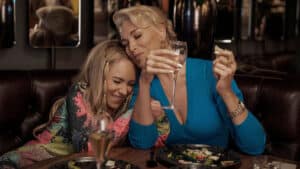
Ethics requires moral imagination, which is the ability to picture the full range of possible choices open to us. And cynicism kills moral imagination. As author Sean P. Carlin puts it, “the stories we tell about the world in which we live are only as aspirational—and inspirational—as the moral imagination of our storytellers.”
Ted Lasso expands our moral imagination. Instead of dismissing people as only being self-interested or cruel, we can picture them as struggling with their own demons and offer them help.
Rather than only seeing the bleakest version of our future, moral imagination encourages us to see the world we want to live in and work towards making it happen, not ignoring the challenges we face but motivating us to overcome them.
While Ted Lasso is paradigmatically non-cynical in the modern sense, there is an interesting hint of the original philosophical Cynicism in the character of Ted. Like Diogenes, the paragon of Cynicism in the ancient world, Ted rejects the conventional metrics of success defined by the society around him. He’s uninterested in wealth or status, and justice to him means more than revenge. He repeatedly, and seemingly authentically, asserts that it’s not winning or losing that matters to him, it’s helping his players be the best versions of themselves they can be.
He also goes through his own arc to embrace another aspect of ancient Cynicism: shamelessness. The Cynics believed that conventions and social norms were bunk. Thus, they felt no shame, because they felt no discomfort in violating social expectations that they dismissed as vacuous. Likewise, Ted goes through his own journey with his anxiety, eventually opening up about it and demonstrating his contempt for norms that would shame him for it.
But Ted Lasso also transcends ancient Cynicism, just as it illustrates a better path than ancient Stoicism. It’s not just about how individuals can come to thrive by learning to cope in a disappointing world. It’s about how assuming the worst about others, and falling into the trap of suspicion and defensiveness, contributes to making the world even more disappointing.
Ted Lasso is not just entertaining. It carries an important ethical message about the virtue of releasing ourselves from cynicism. Yes, it’s unrealistic, but it reminds us that it’s worth having something to aim for, even if it’s likely to forever remain just out of reach.
Ethics in your inbox.
Get the latest inspiration, intelligence, events & more.
By signing up you agree to our privacy policy
You might be interested in…
Opinion + Analysis
Relationships, Society + Culture
Violence and technology: a shared fate
Opinion + Analysis
Relationships, Society + Culture
What money and power makes you do: The craven morality of The White Lotus
Opinion + Analysis
Relationships, Society + Culture
What Harry Potter teaches you about ethics
Opinion + Analysis
Politics + Human Rights, Relationships, Society + Culture
